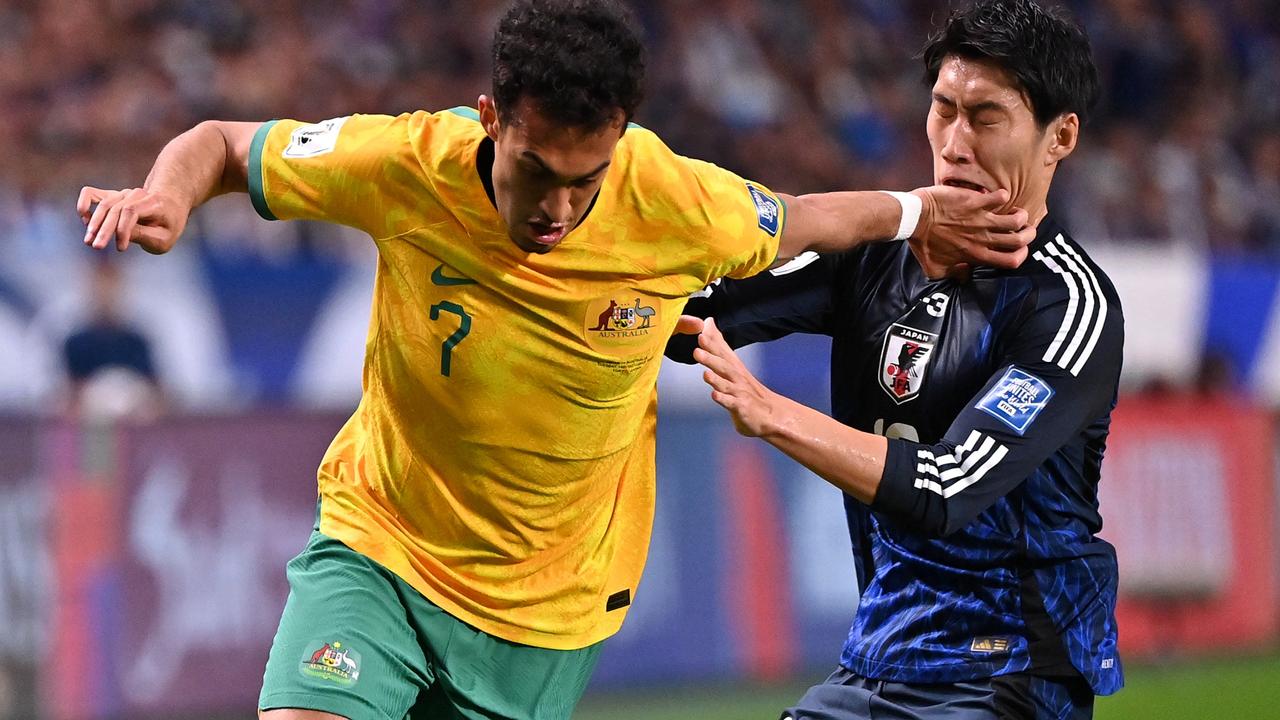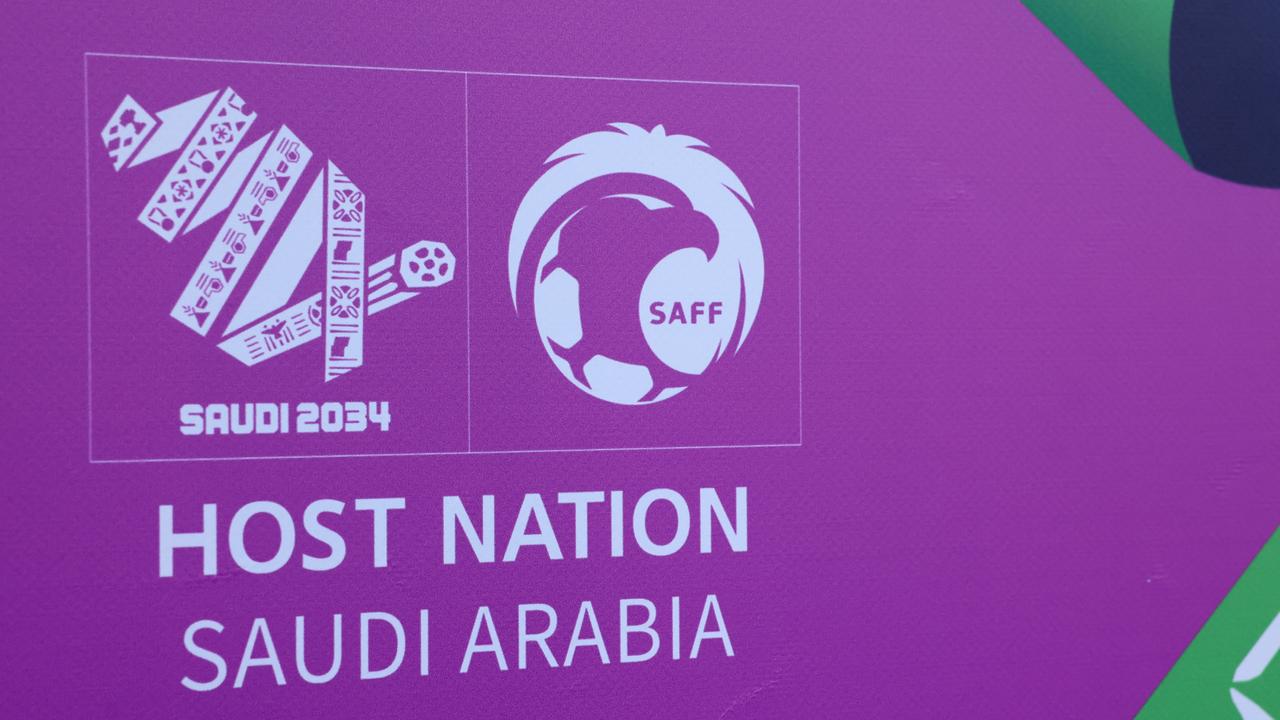FIFA Women’s World Cup: Goalkeeper Lydia Williams discusses how Matildas World Cup glory could revolutionise Australian football
Australian goalkeeper Lydia Williams has seen first-hand what major tournament success has done for women’s football in the UK and US. She speaks to TILLY WERNER about what it could do in Australia.
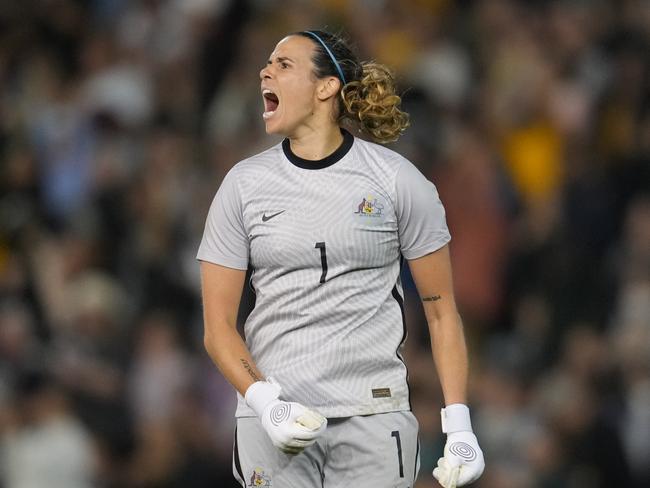
World Cup
Don't miss out on the headlines from World Cup. Followed categories will be added to My News.
Lydia Williams has had a penalty box-seat view to one of the most rapid evolutions in women’s sport.
The Australian goalkeeper has watched professional leagues in England and the United States develop into the WSL and NWSL, two of the most sophisticated women’s sporting competitions in the world.
And now, she believes the A-League Women’s is ready to join them on the podium.
All it would take is the Matildas winning the World Cup next month.
“The English girls winning the Euros, I think that was huge for the sport there,” Williams says.
“Really helped develop the game and in terms of viewership, sponsorship and media in the UK. It‘s just crazy how much people know who you are there, who watch and really support the game.”
From her first NWSL loan to the Chicago Red Stars in 2009 to her WSL debut for Arsenal in 2020, Williams has seen the impact of national teams’ success on domestic women’s football, witnessing how quickly increased investment can reshape leagues and players.
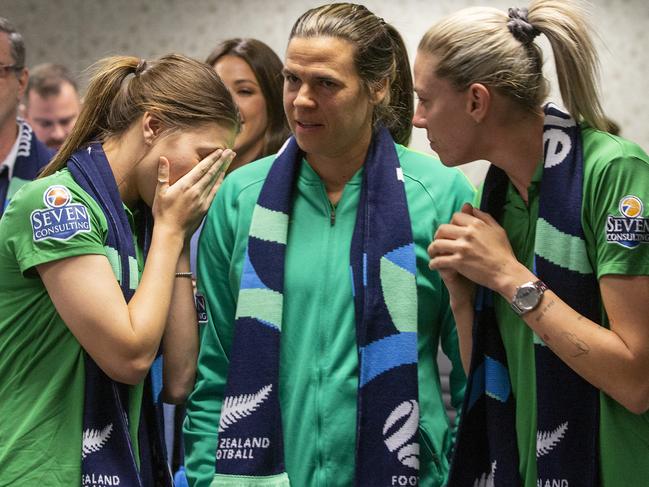
For Williams, like all of her Australian teammates who began their careers in the (then) W-League, it feels like that investment at home is just around the corner.
“Australia is on the cusp,” she says. “And hopefully after the World Cup, we’ll really kind of push on that.
“We’ve already seen it, after Canada in 2015. We did really well at that World Cup and it was the first time I know that we had Australian media fly and actually be with us in another country, which was huge, because it was always via Zoom or someone saying we‘re going to televise this back in Australia and it rarely happening.
“That was a really big shift in terms of believing that the team could achieve not just on the pitch, that we had a reach wider than we realised.
“On the back of the tournament, there was the strike and the CBA agreement. That was a moment where we really believed in ourselves and that if we really invest in ourselves, we can really achieve something, and I think that was probably the start of where we are today.
“That‘s probably the one big moment that really kind of drove us to fight.”
Williams became the face and voice of equality in 2015, as a key spokesperson for the CBA deal and eventually, the modern Matildas.
“It was pretty crazy, that was intense. But I think, you know, anything for the team and in growing what the game needed at that moment.
“I was more than happy to kind of do it, and that time I was home in Australia and was a part of all the negotiations, so I was kind of all across it and felt that it was something that everyone believed in.
“I wanted to really fight for us and who we could be. And look where we are now.”
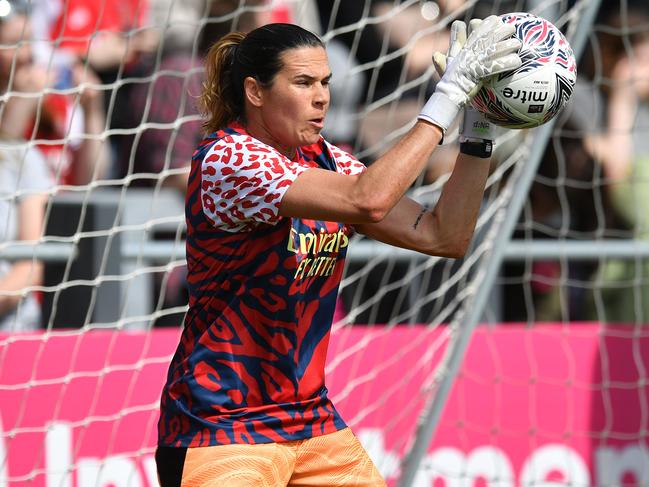
Williams believes that like the landmark deal which secured the Matildas equal footing under Football Australia, the development of the A-League Women’s can be the great legacy of the team’s success at the 2023 World Cup.
However, too much too fast could prove problematic.
“It’s an important lesson from overseas, where it’s almost like the game grew so much that there‘s a few things that get left behind, trying to catch up with growth.”
Load management, Williams believes, is likely to become the key takeaway of 2023.
“The amount of games that people have has increased significantly and I think we’ve seen a really big impact from that with injuries,” she says.
“Making sure that load management [is considered], the travelling and a lot more playing with Champions League, and then come back to where their home base is.
“It‘s really kind of like a balancing game, with making sure you get enough players who are fit to compete at the moment.
“In the WSL this year, a lot of clubs have had a lot of injuries. Look at the England squad.
“Making sure that, with what the game demands nowadays, that there‘s enough support within club and national environments is so important.”
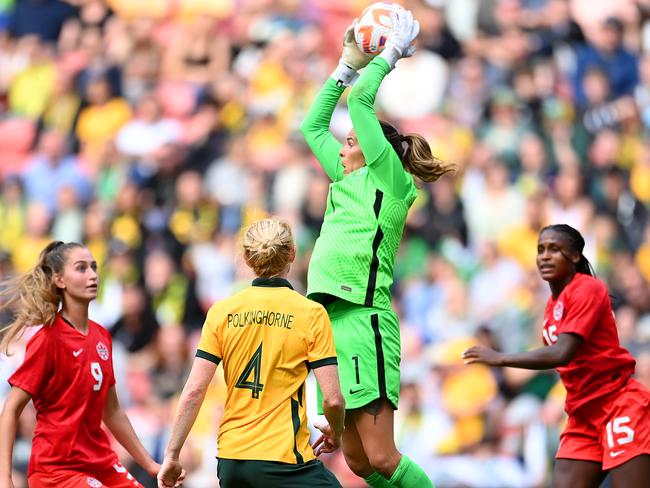
While the Matildas – whose players are strewn across England, Europe, the US and Australia – have been lucky to welcome injured player Kyah Simon back into their World Cup squad, the English Lionesses lost several of their marquees, including Beath Mead, captain Leah Williamson and most recently, Fran Kirby to injury in the 2023 WSL season.
Williams believes it’s a side-effect of expansion that the A-League can learn from. The first lesson is year-long contracts.
“There‘s still a ways to go in terms of maintaining players in Australia.
“More girls are trying to go overseas to take up long-term contracts, so if [the A-League] can really put … effort into [them] being at a club and making sure that they‘re having long-term contracts, one to two to four years, that will be a big win for it.
“Being able to pack, unpack and yeah, have a home and really kind of make a name for themselves in Australia.
“I think it still grows and I think it‘s still going to develop and you can see obviously with what the game is demanding, with more high-quality games and travel and competitions and adding more games into Champions Leagues and whatnot … It’s just getting bigger and bigger.”
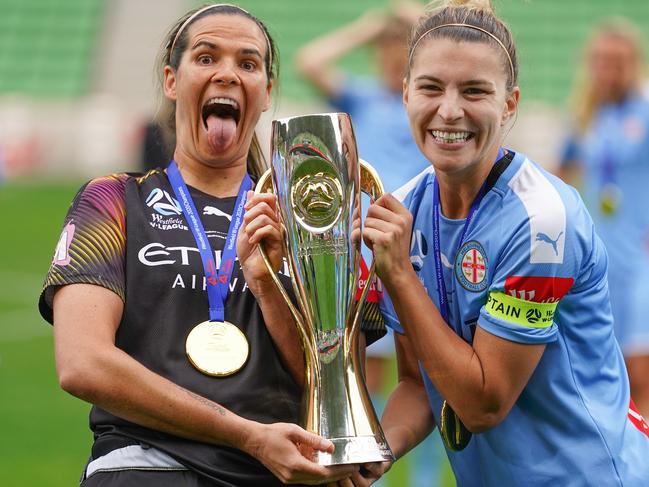
Matildas teammate Tameka Yallop echoes the sentiment, hoping that July’s events will elevate the A-League’s status as a global powerhouse for women’s football.
“I think it‘s a pathway for the youth coming through that we really do need to keep going, so that we can sustain the level of the Matildas that we have right now and for the future of women’s football,” Yallop says.
“The A-League will be very important in that and the legacy from 2023.
“Once you build confidence in our national league, then the players that can go overseas from that have a whole new level of confidence as well. I think the World Cup will definitely boost the confidence of A-League players going overseas and how they can perform in other leagues.”
After 18 years in international football, Williams knows that this World Cup is an unmatchable moment, one that must be followed by unprecedented advancements in the women’s game.
“I think where we were to where we are now is definitely amazing, but it can be better, of course it can. There’s no reason we can’t be the best,” she says.
Originally published as FIFA Women’s World Cup: Goalkeeper Lydia Williams discusses how Matildas World Cup glory could revolutionise Australian football



